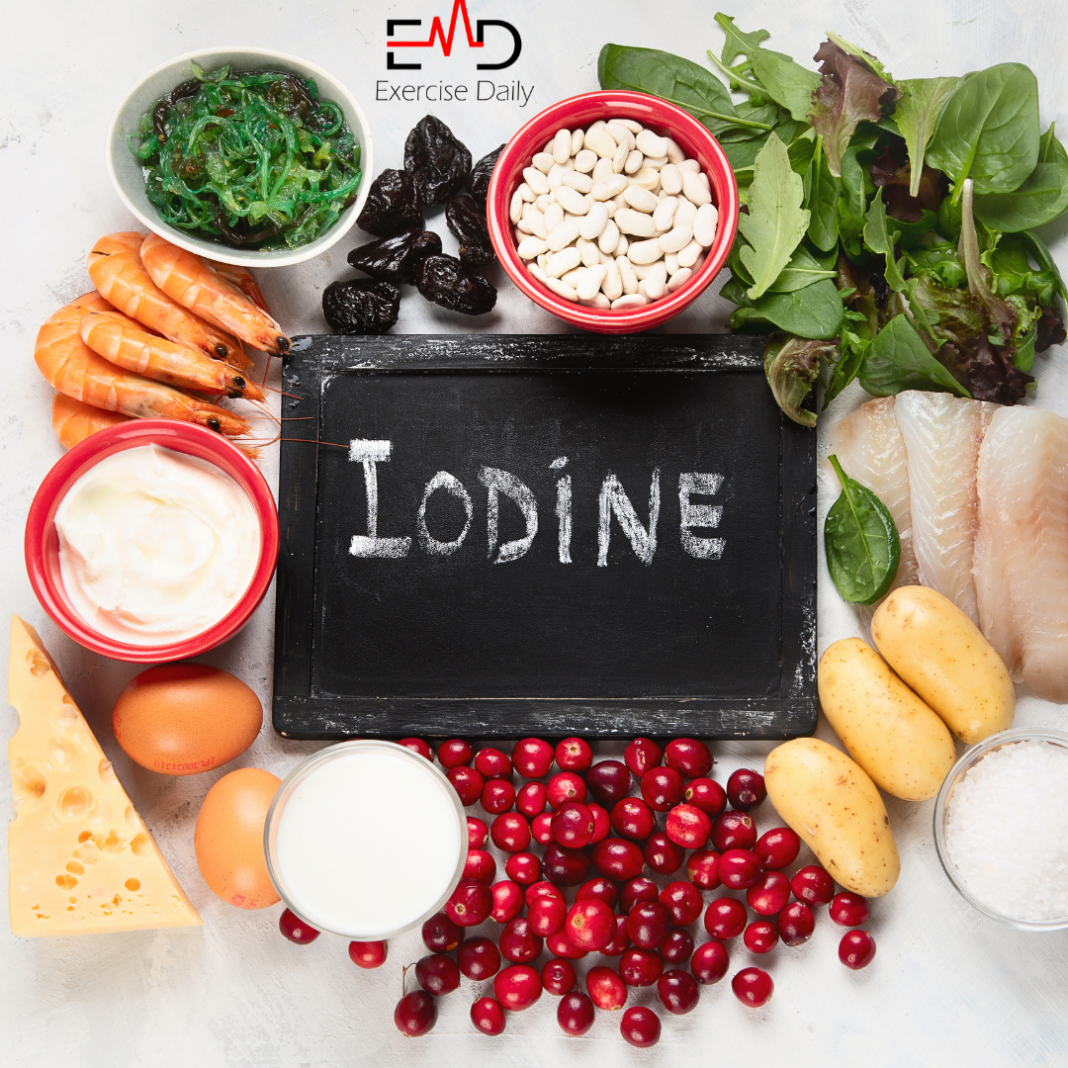Exercise daily – It will be no surprise if we tell you that Vitamin A helps your vision. We often pay attention to our skin and body shape but don’t care about our eye health. You must take care of your eye health.
How does vitamin A help your vision? let’s find out in this post. And you will also get all information about what happens if our body is deficient in vitamin A.
In this article, you will learn everything about vitamin A from deficiency to the best foods enriched with vitamin A. So let’s dive in.
Vitamin A:
It is a fat-soluble vitamin essential in cell development, vision, and reproductive functions. The prevalence of vitamin A deficiency is rare in the first world. However, it is common in people with inflammatory bowel disease and post-bariatric surgery. Vitamin A deficiency can lead to dermatological and ophthalmological impairment.

What are the Different Types of Vitamin A?
There are two types of Vitamin A: retinoids and carotenoids. Retinoids are found in animal products, while carotenoids are found in plant-based foods.
Carotenoid
It is a type of Vitamin A found in plant-based foods such as carrots, spinach, kale, and tomatoes. They are also known as the “anti-cancer” vitamin because they help to fight against cancer cells.
Carotenoids are provitamin A, most commonly beta-carotene, and retinoids are the active forms of Vitamin A. Carotenoid absorption varies greatly depending on the food matrix and type of carotenoid.
Retinoid
It is a type of Vitamin A found in animal products such as eggs, fish, and liver.
It helps with night vision and cell growth. Retinoids show an absorption rate from 75% to 100%.
What Foods Contain Vitamin A?
Natural sources of vitamin A include dark leafy greens. Orange-colored vegetables, milk products, liver, and fish. Some good sources of provitamin A are kale, spinach, carrots (raw), and pumpkin seeds (natural).
It is stored in the duodenum by pancreatic and intestinal enzymes after hydrolyzation and emulsified with dietary fats and bile acids.
The majority is then stored in the hepatic stellate cells. Significant amounts are also stored in adipose tissue and the pancreas.
How Does Vitamin A Help Your Vision?
Vitamin A is essential for vision because it helps the retina and cornea to function correctly. It helps to clear your cornea. Vitamin A is also a main component of rhodopsin that allows our eyes to see in low light. It also regenerates the visual pigment.
What does a deficiency of vitamins do to your vision:
Night blindness can occur due to Vitamin A deficiency because of poor visual pigment regeneration. If the deficiency persists, the rods start to degenerate, and xeropthalmia will develop, leading to actual blindness.
In severe deficiency, xeropthalmia develops with Bitot spots and conjunctival xerosis. If still, VAD persists, its later stages present as corneal xerosis, corneal ulceration, and, in the end, keratomalacia and blindness results.
Phrynoderma may also e seen due to VAD, but it may be associated with other vitamin deficiencies.
Epidemiology
Worldwide, Vitamin A deficiency is most common in children aged less than five years in developing countries. There is an increased risk of VAD in pregnant and lactating women because of their high daily requirements.
The prevalence of vitamin A toxicity in the US is higher than deficiency of vitamin A. 16% of children in the US with IBD have VAD.
Evaluation of VAD:
A clinical diagnosis of vitamin A deficiency can be made through exam findings and laboratory testing. The presence of xerophthalmia is nearly pathognomonic for vitamin A deficiency
The provider can do serum retinol tests for patients with a less clear physical examination. The deficiency happens when you have serum retinol of fewer than 20 micrograms/dl.
The best test for evaluating VAD is by testing the liver retinol concentration on biopsy. There are risks associated with liver biopsy so people don’t commonly perform this test for evaluating VA.
Treatment and Management of VAD:
The best treatment for VAD is vitamin A supplementation (VAS). Many studies have concluded that VAS in those areas where people are vitamin A deficient can reduce childhood mortality and morbidity.
VAS shows a definite improvement in patients with serum retinol of fewer than 20 micrograms/dl. A person with serum retinol greater than 30 micrograms/dl will have no benefit from VAS, and he or she should follow the RDA ( recommended daily allowance).
The World Health Organization (WHO) recommends VAS for selected populations that have VAD. They recommended 100,000 IU one-time doses in children aged from 6 to 11 months, followed by doses of 200,000 IU for every 4 to 6 months up to 5 years of age.
The recommended dose for pregnant women is 10,000 IU or for 12 weeks 25,000 IU ). Their dose is less due to the risk of fetotoxicity.
WHO doesn’t recommends VAS for children less than the age of 6 months or postpartum women.
WHO recommends treating Xerophthalmia with VAS of 50,000 IU for children aged less than six months, 100,000 IU for children 6-12 months of age, and 200.000 TU for children greater than 12 months of age daily for two days, followed by an additional dose after two weeks.
Suppose the patient has VAD due to malabsorption, so providers should consider intramuscular VAS formulations. Post-bariatric surgery patients should take 10,000 IU VAS daily and adjust as needed based on regular serum retinol level monitoring.
Best vitamin supplements:
Now we will tell you some best vitamin A for the blurry vision that are available in the market.
Bronson Vitamin A 10,000 IU, 250 Soft gels:
Description:
Vitamin A may help to maintain healthy eyesight, and it also enhances the immune system function that improves our health. This product is Vitamin A palmitate, a fat-soluble vitamin, and it is very beneficial for the eyes and skin.
Pros:
- It has a high Potency of 10,000 IU per soft gel.
- It is NON-GMO.
- It is un-flavored and great for those people who don’t like the sweet or sour taste of a vitamin.
Cons:
It is not affordable.
365 by Whole Foods Market, Vitamin A With D3, 100 Soft gels:
$5.46
Description:
This product is from fish liver oil. It is very beneficial for healthy vision & cell membrane integrity.
Pros:
- It does not contain artificial colors
- Does not contain preservatives.
- It does not contain artificial flavors.
Cons:
It contains gelatin.
Solgar Dry Vitamin A 1500 mcg (5000 IU), 100 Tablets:
US$7.68
Description:
It Supports Healthy vision, Skin & Immune Systems. It is 100 per serving.
Pros:
- This product is in dry tablet form for those who have some problems with oil-based supplements.
- It is NON-GMO.
- This supplement is vegan, kosher, and free from gluten.
Cons:
If this product is exposed to the sun, it may start to melt.
How Does Vitamin A Help Your Vision? FAQs:
Following are some questions about vitamin A:
-
Does vitamin A help acne?
Vitamin A is a very essential nutrient for the skin. It is a fat-soluble vitamin that aids in the production of healthy skin cells, and it helps to maintain the skin’s natural moisture barrier.
The evidence suggests that taking vitamin A supplements can help reduce acne breakouts and improve your complexion, but it does not seem to be as effective as topical treatments such as benzoyl peroxide or retinoids.
2. Is vitamin a the same as retinol?
Vitamin A is not the same as retinol which is a form of vitamin A that the body can produce from carotenoids. We can take retinol in supplement form or from food sources.
3. What are the types of vitamin A?
There are 3 types of vitamin A: retinol (animal sources), carotenoids (vegetable sources), and provitamin A. The human body can convert some carotenoids into vitamin A. However, this conversion process is inefficient in people who don’t eat a lot of vegetables or animal products that contain retinol or carotenoids.
4. How much Vitamin A is recommended for adults?
RDA of vitamin A is 700 micrograms/day for women and 900micrograms/day for men.
5. Is it safe to take too much vitamin A?
Toxicity of vitamin A can cause symptoms like hair loss, bone pain, liver damage, and skin dryness.
Conclusion:
Vitamin A is a fat-soluble vitamin that the body needs to maintain healthy eyes. It’s also essential for maintaining healthy skin, teeth, bones, and cell growth. The body cannot produce Vitamin A on its own, so it must be obtained from food sources or supplements.
It also protects against many types of cancer and may even play a role in preventing heart disease and stroke. How does vitamin A help your vision? We also answered this question.
You can ask in the comment section below if you have any questions regarding this topic.



